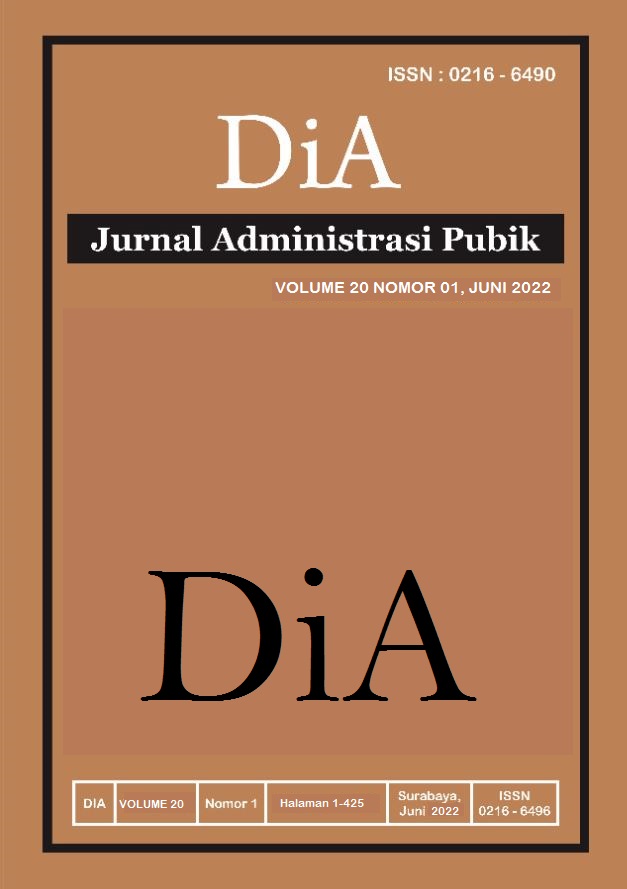EMPOWERMENT OF SALT FARMERS THROUGH THE PEOPLE'S SALT BUSINESS EMPOWERMENT PROGRAM (PUGAR) IN LEMBUNG VILLAGE, GALIS DISTRICT, PAMEKASAN REGENCY
DOI:
https://doi.org/10.30996/dia.v20i01.6137Keywords:
Empowerment, Salt Business, Lembung Village PeopleAbstract
The problem with salt farmers in Lembung Village is the income level of salt farmers and the lack of support from the government concerned in developing the empowerment of the salt industry. In addition, salt farmers have many difficulties such as capital, weather, fluctuating salt prices, income that does not meet their needs, and lack of support such as training to develop the salt industry. Even though the potential for salt in Pamekasan and especially in Lembung Village, Galis District is very large, it should be developed even better so that it can increase the income of salt farmers. The purpose of this study was to determine the Empowerment of Salt Farmers through the People's Salt Business Empowerment Program (PUGAR) in Lembung Village, Galis District. The theory used in this study uses the theory of Kieffer in Edi Suharto (2014) namely Enabling, Strengthening, Protecting, Supporting, and Maintaining. The reason for using this theory is because the implementation of the process and the achievement of empowerment goals are achieved through the application of empowerment from this theory. The type of research used in this research is qualitative research. Data collection techniques were carried out through interviews, and documents. The government should, through the Fisheries Service, really empower the Salt Farmers of Lembung Village, considering its huge potential. In addition, the government through the Department of Fisheries pays serious attention to farmers in fostering and assisting farmers in the process of their business continuity.
Downloads
Downloads
Published
How to Cite
Issue
Section
License
The DiA journal allows authors to retain the copyright of their papers without limitation. Authors may grant publishers non-exclusive publishing rights to publish articles. Granting first publishing rights to publishers also qualifies as unlimited copyright (because there are no restrictions imposed by publishers on author copyright).







